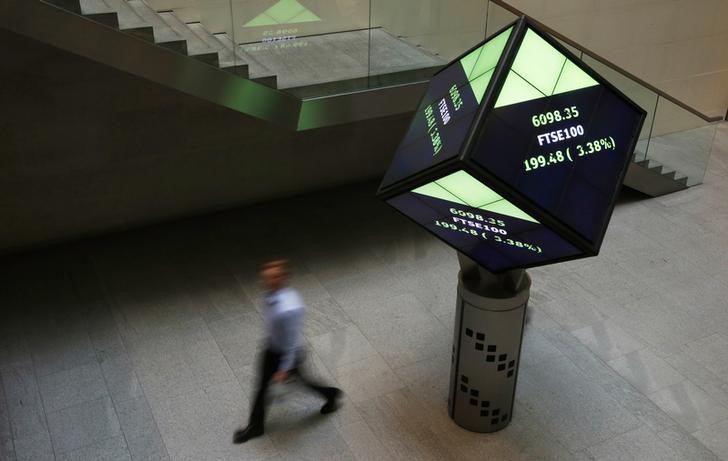Proactive Investors - The FTSE 100 has tumbled lower in Wednesday's early trading, falling 46 points or 0.6% to 7673, despite some encouraging news from UK public finances.
Weighing on the index is a sharp fall for its third largest company, HSBC Holdings PLC (LON:HSBA), which is down more than 7% after reporting an 80% plunge in profits for the past quarter.
Full-year revenues and profits jumped thanks to rising interest rates, and the board declared a new share buy-back of up to $2 billion, but investors were not impressed.
"Mainland China remains a question mark," said analyst Matt Britzman at Hargreaves Lansdown (LON:HRGV), with HSBC's write-down of Chinese associate BoCom and the Chinese commercial real estate sector continuing to be weak.
The outlook is "messy", he said, with returns expected in the mid-teens once some one-off bits are taken out, costs are forecast to rise 5% and loan loss levels are expected to tick higher.
"Overall, that paints a mixed underlying picture that looks to be a little worse than the current consensus has built in."
Glencore PLC (LON:GLEN) is another blue-chip faller, down 4.3% as its underlying profits halved, with no new buyback nor special dividend as the commodities giant works on the acquisition of Teck Resources' metallurgical coal business.
BAE Systems (LON:BAES) is also in the red, despite beating guidance for profits and unveiling an 11% dividend increase.
Shares in the defence colossus have more than doubled since the outbreak of that war in 2022, so it could be a case of profit-taking and overly high expectations.
The early leaderboard is topped by Barclays PLC (LON:BARC), rebounding 2% after a large fall on yesterday's results.
St. James’s Place PLC (LON:SJP), up 1.8% ahead of results next week, and Burberry Group PLC (LON:BRBY), up 1.5% after reactions to yesterday's fashion show were further mulled.
UK public sector borrowing
January’s public finances figures have delivered some good news for Chancellor Jeremy Hunt ahead of the Budget in two weeks' time.
UK public sector borrowing showed a record surplus of £16.7 billion for January, data from the Office for National Statistics revealed this morning.
This surplus was more than double the surplus of January 2023 and the largest surplus since monthly records began in 1993 in nominal terms.
Borrowing in the financial year-to-January 2024 was £96.6 billion, £3.1 billion less than in the same ten-month period a year ago.
This was £9.2 billion less than the £105.8 billion forecast by the Office for Budget Responsibility (OBR) in November 2023, thanks in part to a fall in Interest payable on central government debt.
"We doubt this will pave the way for a big pre-election splash," said economist Ruth Gregory at Capital Economics. "We think the Chancellor will be handed 'headroom' of just £15bn (0.5% of GDP), limiting his ability to unveil big unfunded tax cuts if he wishes to adhere to the fiscal rules."
